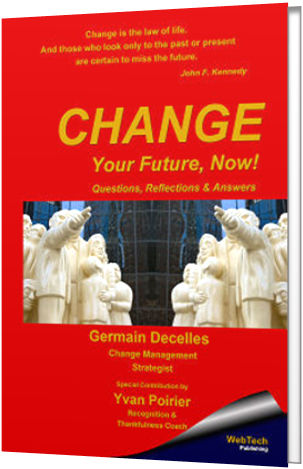|
Article published on LinkedIn.com: June 21, 2023
05_communicationg_062123.pdf

CommunicatinG
No matter what your age, background, or experience,
effective communication is a skill you can learn.
Developing good communication skills is an important
part of living a fulfilled life.
Effectively communicating your career, personal, and
everyday needs in a way that comes across clearly,
persuasively, and thoughtfully is crucial. Even so, not
everyone knows how to communicate.
Knowing how to communicate well is not innate, and many
bright, talented, and dedicated people do not get where they
should, all because they fail to adequately communicate their
points. With a little self-confidence and knowledge of the
basics of good communication, you would be able to communicate
your message effectively in both conversations and
presentations, in all walks of life.
Communication is the process of transferring
signals/messages between a sender and a receiver through
various methods, such as written words, nonverbal cues, and
spoken words. Communication is the mechanism we use to
establish and modify relationships.
Communication is selling; after all, we are all selling
something. Some of us sell products, other ideas. Some will
sell a viewpoint, and surely we all sell ourselves. At every
stage of our private lives or careers, whether it be
management, sales, training, education, politics, church,
home, or parties, we are all engaged in selling something.
Moreover, the idea of selling can be used
interchangeably with the idea of persuasion and reaching an
agreement.
So, if communication is selling, then what we want is
for our listener to ‘’buy in,’’ to agree. We want to influence
him, or her, to make a decision in our favor. Our listener
will base his, or her, decision primarily on how he or she
feels about us, on information received at an emotional level,
and on whether we have made emotional contact.
The first thing to understand about communication is
that we are all selling something. The second and even more
crucial thing to understand is that people buy emotion and
justify with fact.
The attitudes you bring to communication will have a
huge impact on the way you compose yourself and interact with
others. Choose to be honest, patient, optimistic, sincere,
respectful, and accepting of others.
Honesty is always the best policy. You will never
regret being honest. It sounds like the simplest thing in the
world, but being truly honest with others and with yourself,
can be a real challenge. Communication is also about being
sensitive to other people's feelings and facing uncomfortable
truths about yourself. This usually requires lots of patience,
vigilance, and hard work.
Patience is never easy, but it is probably even harder
now than at any time in history. In a world where messages can
be sent across the world instantly, seemingly everything is
available with a few clicks of the mouse. It is very hard not
to expect instant satisfaction.
Nevertheless, patience remains a valuable tool in life.
Fortunately, patience is a virtue that can be cultivated and
nurtured. It does take time to fulfill this goal, but once
this has grown into an ordinary skill for you, you certainly
will not be disappointed at what life can offer you with a
little patience.
Optimistic people are the real communicators. Seeing
only the pessimistic aspects of any situation can cause you to
miss opportunities, neglect problems that need to be solved,
and fail to take action that would otherwise improve your
relationships and quality of life.
Always assuming the worst can have major negative
consequences on your life. In fact, studies show that
pessimists are more likely to develop chronic illnesses later
in life than optimists. Optimists look for the light at the
end of the tunnel.
Sincerity is all about being genuine, having faith and
trust in yourself, and just being rather than trying to
project something that you are not. No other formula exists
for sincerity than to be sincere.
Respect should be incorporated into your everyday
lifestyle and be part of your regular social skills. You
should always remember that it takes respect to earn respect.
Being respectful tells people you not only care about
others, but you care about yourself. Respect is shown in many
more ways than by just using please and thank you.
Listening and responding intelligently and seriously will show
a great amount of respect.
Accepting others is the most important value in the
communication process. We can find it challenging to accept
other ways of life and rituals.
However, closed- mindedness and intolerance are not
helpful, especially when there is so much we can learn about
other cultures. Learning to accept and respect them is an
important step that opens your mind to the world around you
and everyone's unique differences.
Remember that the wonderful thing about character and
integrity, which are intimately related, is that they are some
of the few things in life that no one will ever be able to
take away from you force ably.
Also, in the same chapter you can familiarize yourself
with questions, reflections, and answers about:
Should I be sensitive to other people's feelings?
Can I develop effective listening skills?
What determines my personality?
How can I have the courage to say what I think?
Do men and women communicate differently?
can
How do I make eye contact?
Should I be aware of what my body is saying?
What are others seeing?
Should I be aware of conversation pointers?
How can I have great conversations?
What about nonverbal communication?
How can I address an audience?
How can I communicate with children?
How can I achieve effective inter-generational communication?
How can I reach a consensus?
How can I be polite?
How should I Apologize?
How can I forgive?
Do you want to live a long, happy life?
How can I make my personality stand out?
How can I expand my vocabulary?
What should I consider?
This 642-page book is the result of a four-year project called Project
Tomorrow. During the four-year period, we followed more than
500 trainees, aged from 16 to 72.
The trainees were from colleges and reinsertion
programs in administration and computer science. Some of the
trainees that were implicated where dropouts from school
districts, and others were new immigrants or unemployed
workers from different economic and social backgrounds.
To graduate, the trainee had to perform during a period
of three months in a business environment. At the end of that
time, an appreciation evaluation was performed to determine
both the amount of change the trainee experienced during the
period and the impact of that change on the trainee.
Many of the questions, reflections, and answers
presented in this book are issued from our findings during
this period. We would like to thank all the trainees for their
efforts and determination during the process.
In a nutshell, to change your life for a better future, you
will need
detailed
your
The book through questions, quotes and reflections
provides the necessary elements to explore your soul, to find
out who you really are, what your true passions are and how
you can become more efficient and effective, so you can shape
your life.
|

|
This 642-page book is the result of a four-year project
called Project Tomorrow. During the four-year period,
we followed more than 500 trainees, aged from 16 to
72.
It is also the fruit of forty years of experience
acquired with local and international organizations
and companies and during consultancy, change
management, transition, and marketing services. For
more information go to:
www.webtechpublishing.com .
|
About the Author
Decelles
Other publications:
ISO Pour Tous
– Le manuel
d’information ISO – Le guide de préparation ISO – La
gestion du changement en affaires – La gestion de
projet d’affaires – Le
changement POUR TOUS –
Change Your Future,
Now! – Mon succès est votre succès –
My Success Is Your Success.
Press Contact
Germain Decelles, o.s.j.
WebTech Management et Publication Incorpored
|
 |
—30 —
|